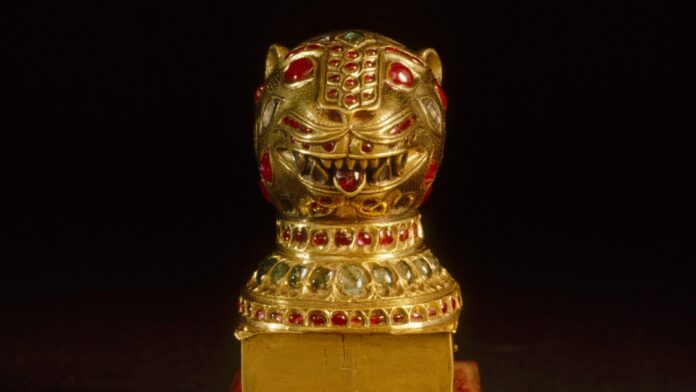The Indian government hopes to repatriate thousands of objects held in UK institutions, such as the British Museum and the Victoria & Albert Museum (V&A) in London, which were removed from India over the centuries. Items seized during British colonial rule, lasting from 1858 to 1947, will be a focus of the government campaign.
According to the Daily Telegraph, “officials in New Delhi are preparing what would amount to the largest repatriation claim faced by the UK, on a scale that would dwarf Greece’s demands for the Elgin [Parthenon] Marbles”. Indian officials say that artefacts taken during British rule of the Empire were “unethically” removed.
However, Indian government sources tell the Indian daily the Hindu that the Telegraph’s report is “unfortunately misleading” and a “significant overstatement” in terms of how it portrays the [Indian] government and its approach to the UK. Nonetheless, they do say that India is actively seeking the restitution of certain objects from the UK.
Institutions on India’s hit list, according to the Telegraph, include the British Museum, which holds a collection of Hindu statues and the Amaravati Marbles taken from a Buddhist stupa by civil servant Sir Walter Elliot, and the V&A which has Tipu Sultan’s mechanical tiger.
A spokesperson for the British Museum says the museum “understands and recognises the significance of the issues surrounding the return of objects and we work with communities, colleagues and museums across the globe to share the collection as widely as possible”. The V&A did not respond to a request for comment by the time of publication.
Tippoo’s Tiger was made for Tipu Sultan, ruler of Mysore in South India from 1782 to 1799. According to the V&A website, the “British East India Company… fought three wars against [the South Indian state of] Mysore before making the final assault on Tipu’s capital, Seringapatam, in 1799. The ruler was killed as the army swept into the city and looted the houses of its inhabitants… Tipu’s treasury was divided on the spot between the soldiers according to rank, but the wooden tiger was shipped to London.”
Powis castle in South Wales, which houses treasures that once belonged to the Clive family, could also face a restitution claim. “Amassed during the British colonisation of India, these objects arrived in Wales and came to Powis Castle during the early 19th century. The museum houses more than 1,000 items from South and East Asia, dating from about 1600 to the 1830s,” says the website.
A spokesperson for the National Trust, which runs the castle, says: “Like any museum, the National Trust would follow the Museums Association code of ethics and the Arts Council guidance on restitution and repatriation around any requests made of its collection.”
Govind Mohan, secretary for the Indian ministry of culture, told the Daily Telegraph that returning antiquities would be a key policy, saying: “It is of huge importance to the government. The thrust of this effort to repatriate India’s artefacts comes from the personal commitment of prime minister Narendra Modi who has made it a major priority.” Items removed from India post independence (after 1947) will also reportedly be sought. The High Commission of India in London did not respond to a request for comment.

























